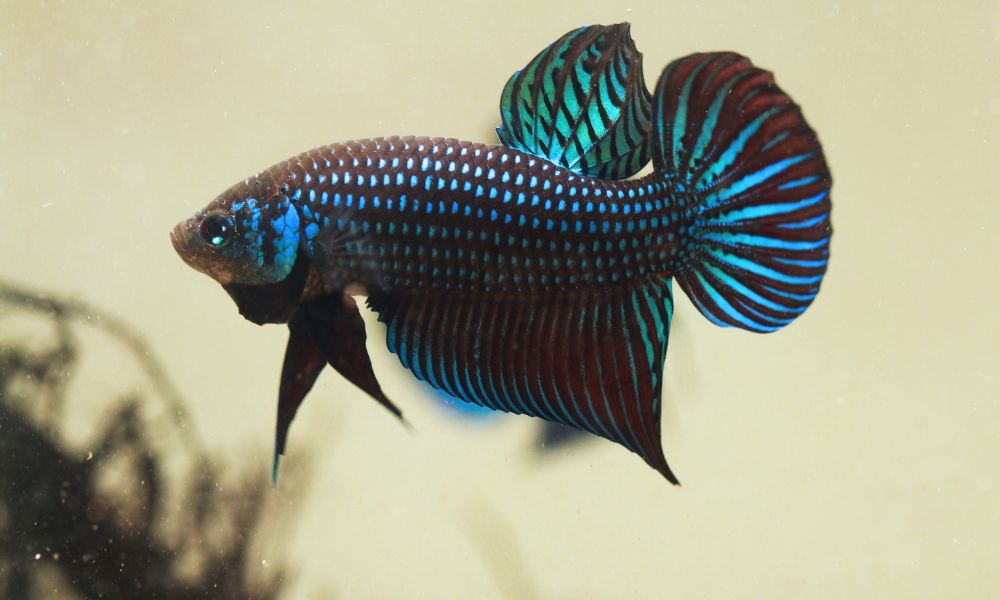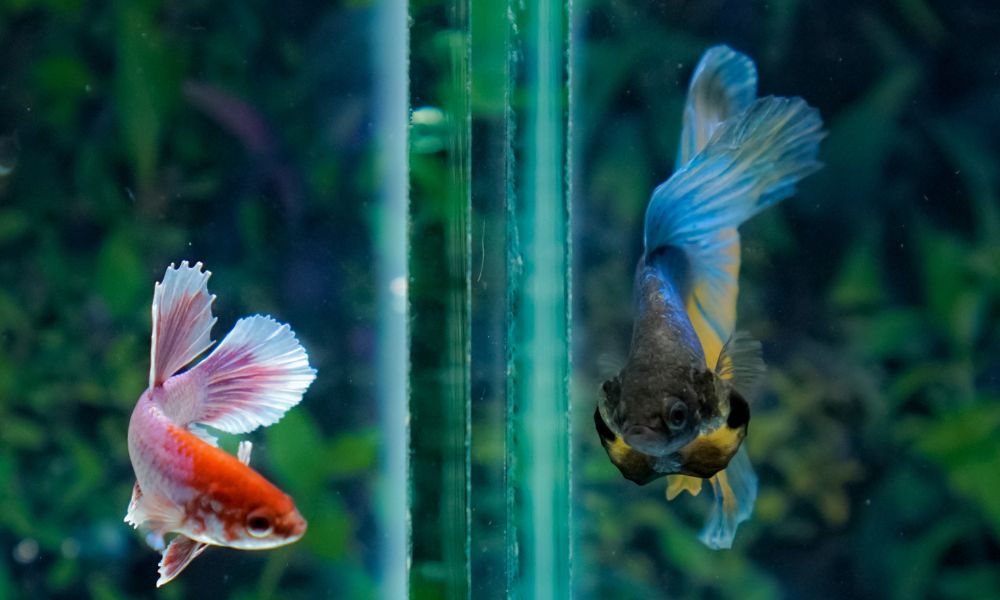In this article Show
Have you ever caught your betta fish staring intently at the television screen? As an avid fish keeper with a deep understanding of home aquariums, I often find myself fascinated by the unique behaviors of betta fish.
These vibrant and intelligent creatures captivate us with their vivid colors and distinct personalities. But the question arises, do these aquatic beauties actually enjoy watching TV, or is it just a coincidence?
In this article, we’ll explore this intriguing topic, examining whether betta fish can engage with television and how it potentially influences their behavior and well-being. Stick around as we unravel this interesting aspect of betta fish care, where we blend scientific insights with practical fish-keeping wisdom.
Do Betta Fish Watch TV?
Yes, betta fish can visually notice and react to the moving images and lights on a TV screen. While they don’t “watch TV” in the human sense, these curious creatures may show interest in the flickering lights and colors on the television. This reaction is part of betta fish’s natural response to visual stimuli in their environment.

Benefits of Exposing Betta Fish to Television
The following are the benefits of exposing betta fish to television;
1. Stimulation and Enrichment
Just like humans, betta fish need mental stimulation. The moving images and varying colors on a TV screen can provide a dynamic visual environment that may prevent boredom in these intelligent creatures. This is particularly relevant in the relatively static environment of a home aquarium.
2. Stress Relief
In some cases, the gentle and predictable movements on a TV can have a soothing effect on betta fish. This is akin to the calming effect of background music for humans. It’s important, however, to monitor the content and ensure it’s not overly stimulating or distressing.
3. Enhanced Engagement
Betta fish are known for their curiosity. An occasional change in their visual environment, such as a TV screen, can be an engaging experience for them, potentially leading to increased activity and alertness.
Risks of Exposing Betta Fish to Television
Here are the risks of television to betta fish;
1. Overstimulation
Constant exposure to the rapidly changing scenes on a TV can be overwhelming for betta fish. This could lead to stress, which is detrimental to their health. It’s crucial to balance stimulation with periods of calm.
2. Disruption of Natural Behavior
Excessive artificial stimuli like television could potentially disrupt the natural behavior patterns of betta fish, such as feeding and resting. Maintaining a natural rhythm is key to their well-being.
3. Impact on Sleep Cycles
Betta fish, like many other creatures, need a regular light-dark cycle to maintain healthy sleep patterns. The light from a TV, especially during the night, can disrupt this cycle, leading to stress and health issues.
Alternative Forms of Enrichment for Betta Fish
Providing enrichment for betta fish is crucial for their well-being, especially since they are known for their intelligence and curiosity. While a TV can offer some stimulation, there are many other ways to keep your betta fish engaged and happy without relying on electronic devices. Here are some effective alternatives:

1. Varied Tank Decorations
- Natural Plants: Live plants not only enhance the beauty of the tank but also provide hiding spots and visual interest for bettas.
- Caves and Shelters: Adding caves or similar structures can encourage exploration and offer a sense of security.
- Floating Logs or Leaves: These can mimic natural environments and give bettas a place to rest near the water surface.
2. Interactive Toys
- Mirror Play: Briefly introducing a mirror can stimulate your betta, as they might interact with their reflection. However, it’s important to do this sparingly to avoid stress.
- Feeding Puzzles: Toys that make feeding a more engaging process can be beneficial. They encourage natural foraging behaviors and mental stimulation.
- Interaction with the Owner: Bettas can be trained to follow your finger or even perform simple tricks, which can be a fun and engaging activity for both the fish and the owner.
3. Controlled Light Changes
- Gentle Lighting Transitions: Simulating natural dawn and dusk with gradual lighting changes can be very soothing and align with their natural circadian rhythms.
- Color Variations: Some aquarium lights offer color settings that can provide a subtle change in the environment, but avoid anything too bright or flashing.
4. Regular Environment Changes
- Rearranging Decor: Periodically changing the layout of the tank can create a new and interesting environment for bettas to explore.
- Different Viewing Angles: Placing the tank in a location where the outside environment changes, like near a window (with careful temperature control), provides visual stimulation.
By incorporating these alternative forms of enrichment, you can create a stimulating and healthy environment for your betta fish, ensuring their physical and mental well-being. Remember, the key is to offer variety while keeping the betta’s natural behavior and preferences in mind.










